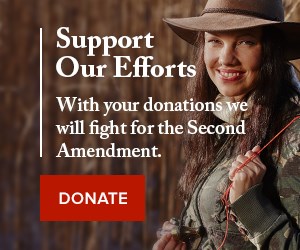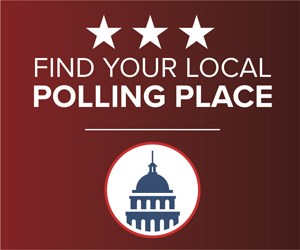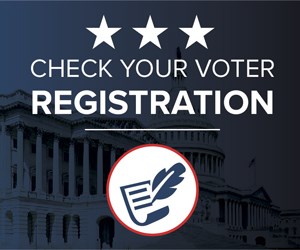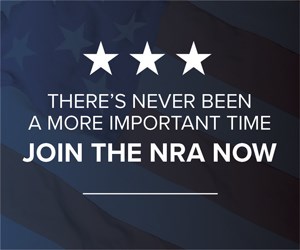Hunters have countless, well-funded, politically sophisticated enemies whose goal is to end our enjoyment of America`s mountains, fields, woods and wetlands: Chief among them is the $120 million-a-year Humane Society of the United States (HSUS). Its president, Wayne Pacelle, claimed at a California campaign event that, "Only 7 percent of Americans are hunters. That means there are more of us than there are of them. . . . We are going to use the ballot box and the democratic process to stop all hunting in the United States. . . . We will take it species by species until all hunting is stopped in California. Then we will take it state by state."
In light of the clear and present danger posed by Pacelle and many others, it seems logical that hunters of all stripes would gather together and draw a line in the sand whenever any form of hunting is threatened. You`d think that hunters would establish a united front and commit to fighting to the last man or woman.
|
Only 7 percent of Americans are hunters. That means there are more of us than there are of them. . . . We are going to use the ballot box and the democratic process to stop all hunting in the United States. . . . We will take it species by species until all hunting is stopped in California. Then we will take it state by state. --Wayne Pacelle, president, |
The unfortunate truth, however, is that division often exists within the hunting community that Wayne Pacelle and others foment. They know it is easier to conquer a divided force. Some shortsighted hunters too often agree with the hunting ban advocates that certain forms of hunting should be ended or severely curtailed. All hunters must remember that, contrary to Pacelle`s recently toned-down rhetoric, the antis don`t really care how or what we hunt-they care that we hunters should learn from the experience of the much larger gun-owning community in 1993, when the Clinton administration sought the most extensive gun ban in U.S. history. Clinton and his anti-gun friends in Congress said they were only after the "scary looking" so-called "assault weapons" and that "average gun owners" had nothing to fear. (Substitute a few words and it sounds a lot like Pacelle`s claims when he seeks hunting bans.) Some gun owners fell for this lie hook, line and sinker, despite NRA's best efforts.
Shotgunners were the most likely to fall for the ruse. They had their high-gloss, engraved skeet guns and had no personal interest in ever owning a semi-automatic rifle made of parkerized metal and black synthetic furniture. NRA worked diligently to convince them that all gun owners, regardless of immediate self-interest, must stand united against the ban, not only on principle, but to prevent additional bans. We warned that the definition of an "assault weapon" would continue to expand in the future until it included the same guns the shotgunners assumed would always be safe from the gun grabbers` reach.
In the years following the imposition of the 1994 ban, the usual suspects proved us right by falling over themselves in an effort to expand the list of banned guns. For example, Sen. John Kerry, D-Mass., co-sponsored S. 1431, a bill that proposed to dramatically expand the ban by defining all of the semi-automatic shotguns commonly used by the nation`s duck, goose and upland bird hunters as "assault weapons:` During his 2004 presidential run, it was comical to see how hard he worked to avoid being seen on the campaign trail with one of these common hunting guns.
The gig was up when some union leaders finally forced a Remington 11-87 semi-auto shotgun into his hands during a surprise gift presentation at a West Virginia campaign stop. There he was, the faux hunter, holding a gun he wanted to keep all honest, hard-working Americans from acquiring.
Unwittingly, Kerry did more to convince gun owners to stand united than any person on the pro-freedom side of the fight ever could have done. This was evident during our successful effort to see the 1994 ban sunset in 2004. Gun owners--from those who collect Revolutionary War muskets to those who must have the latest and greatest AR-15s--learned that any erosion of freedom leaves all of us with less ground to defend. It leaves those still standing that much closer to being pushed off the cliff.
The good news is that the vast majority of hunters already understand the gravity of the situation. The problem is that we can`t afford to take a major policy loss in order to get the holdouts on board. We all know how difficult freedoms are to reclaim` once they`ve been lost.
What kinds of potential policy losses might be on the horizon? It`s no secret that HSUS believes that bow hunting is vulnerable. They know that if they can end bow hunting, other forms of hunting are within reach. Here is what Michael Markarian, HSUS`s top lobbyist, wrote in his March 17 Legislative Fund blog opposing a bill that would allow bow hunting on Sundays in New Jersey:
". . . the use of primitive archery equipment is one of the most inhumane and inefficient ways to kill an animal. Archers routinely spend hours tracking the blood trails of deer struck by arrows before the animals finally bleed to death. Three decades of research tell us that bowhunting has about a 50-percent crippling rate-for every deer struck by arrows and retrieved by bowhunters, another wounded deer is crippled and disappears, to die slowly."
It`s not a matter of "if" but "when" HSUS makes a real run at a bowhunting ban in select states. Will all hunters rush to the defense of this one discipline pursued by only 25 percent of all hunters? If rifle and shotgun hunters do not defend bow hunters, who do they think will be the next targets? No hunter should stand on the sidelines while HSUS gains momentum toward its ultimate goal of banning all hunting.
Private hunting preserves are another such issue. Will hunters who only hunt on public land help defend hunting preserves, knowing that banning hunting on national wildlife refuges is also a top agenda item for HSUS? And it`s obvious that hunting on the millions of acres of national forest land across the country is the next step in our opponents` incremental campaign.
This struggle cannot be limited to a good defense. We must collectively continue to push for more hunting opportunities across the board. These efforts promise to bring more people to the hunter ranks, something that is badly needed at a time when only 69 new hunters enter the fields and forests for every 100 who permanently quit hunting.
There is no place for selfishness in the battle to promote hunting. More hunters in the woods is a good thing by all objective measures, even if it means that someone else kills the big, elusive buck we`ve been after for years. More hunters now mean that future generations will continue to enjoy hunting as we have. Pacelle made it clear in the quote cited at the outset that he seeks to take full advantage of hunters` minority status in today`s political arena.
All hunters must stand together in defense of our hunting heritage, despite which individual types of hunting we choose to enjoy. If we stand united to oppose all measures that diminish hunting opportunities and support all that expand them, it will mean more hunters in the `woods. This translates to more defenders at the ballot boxes and state capitols. More than anything else, this will disrupt the anti-hunters` sinister plans for our demise.













